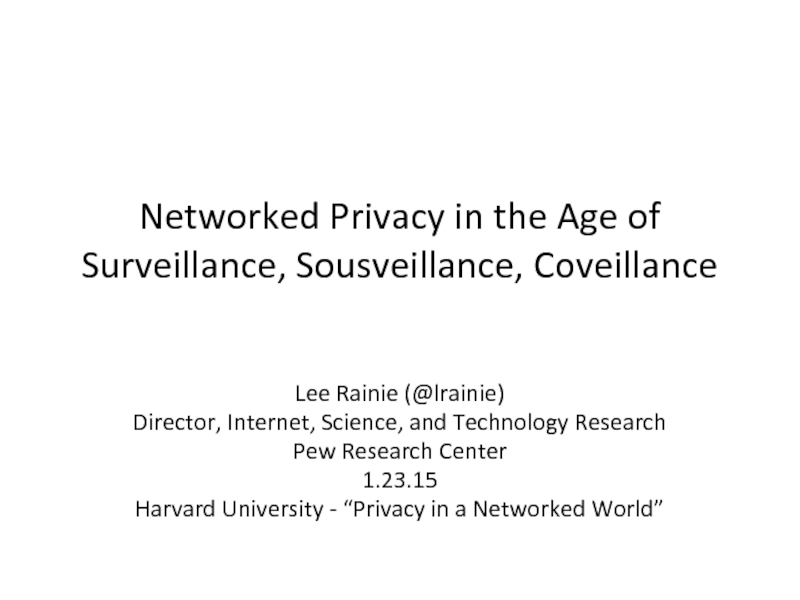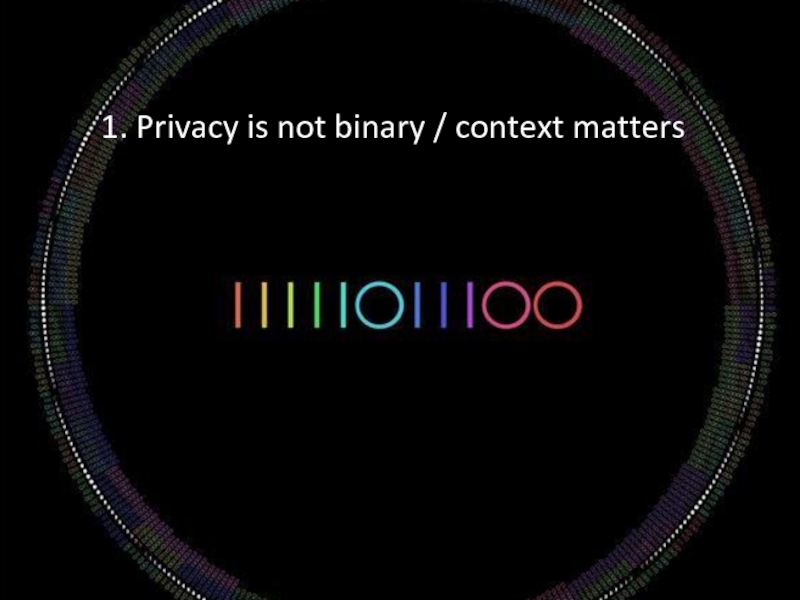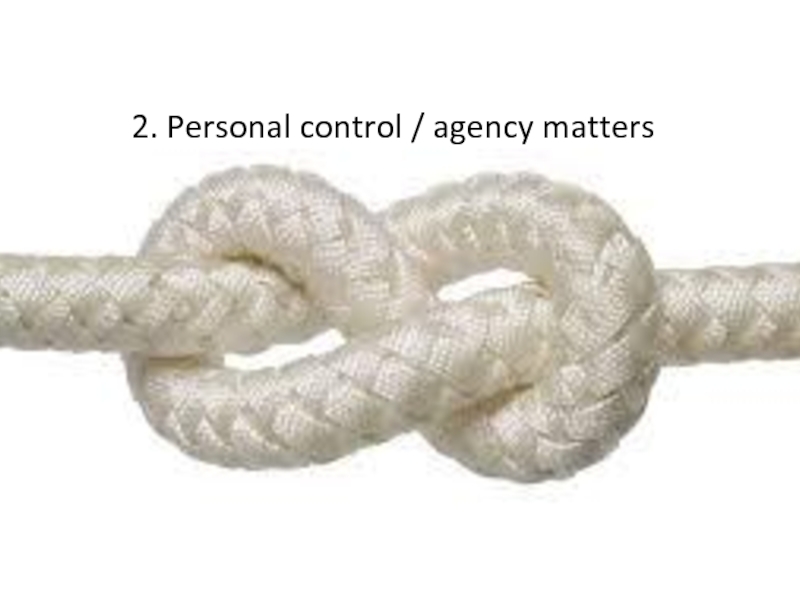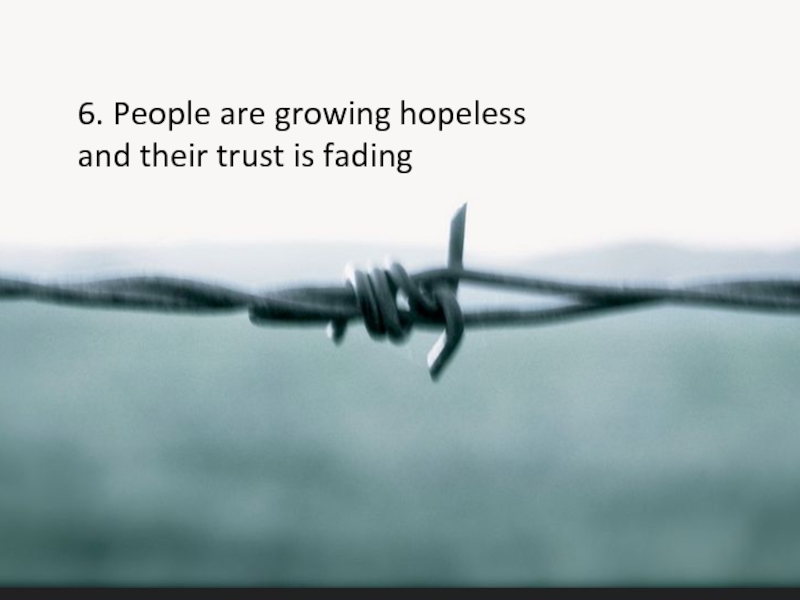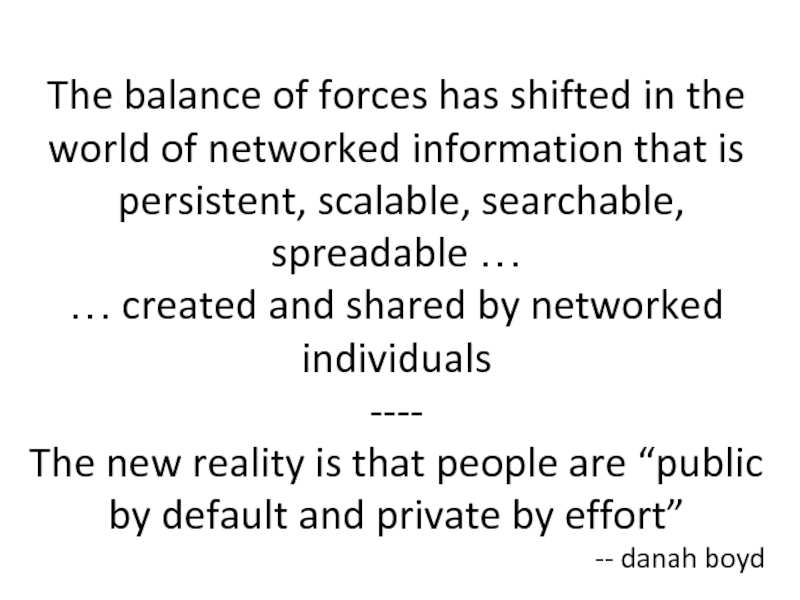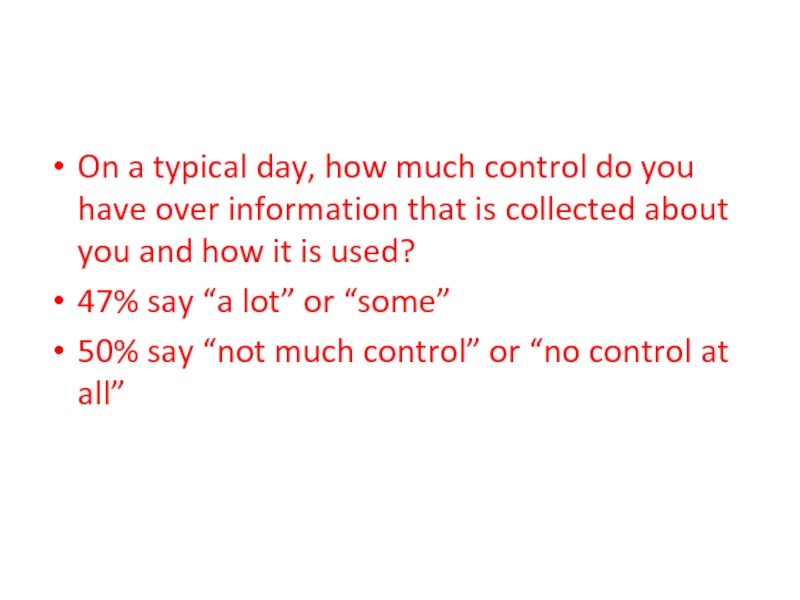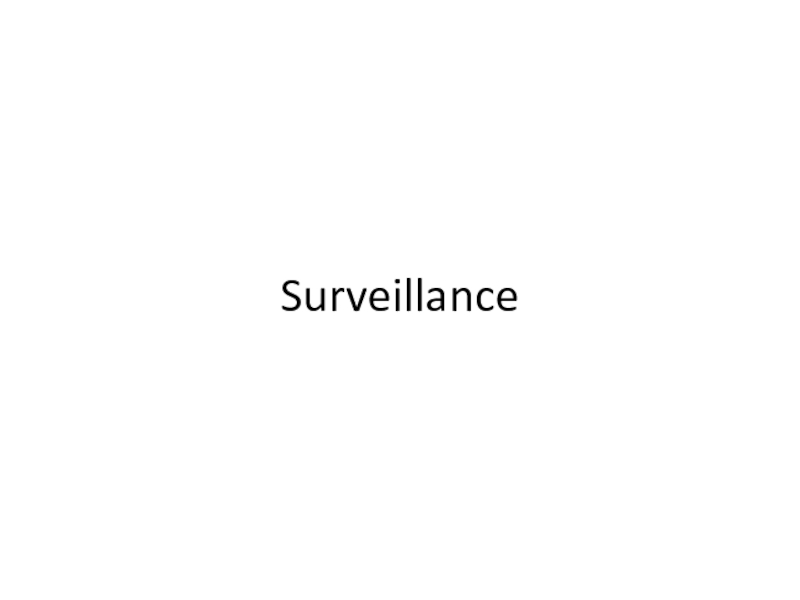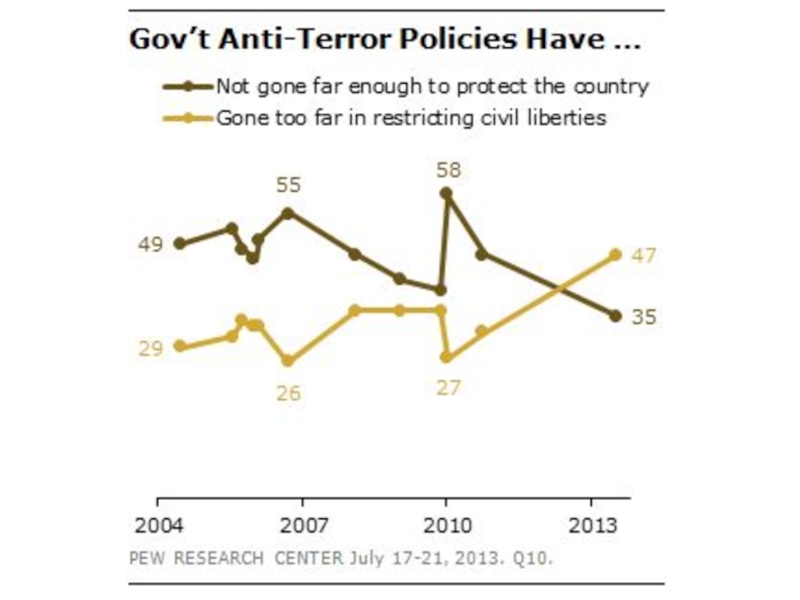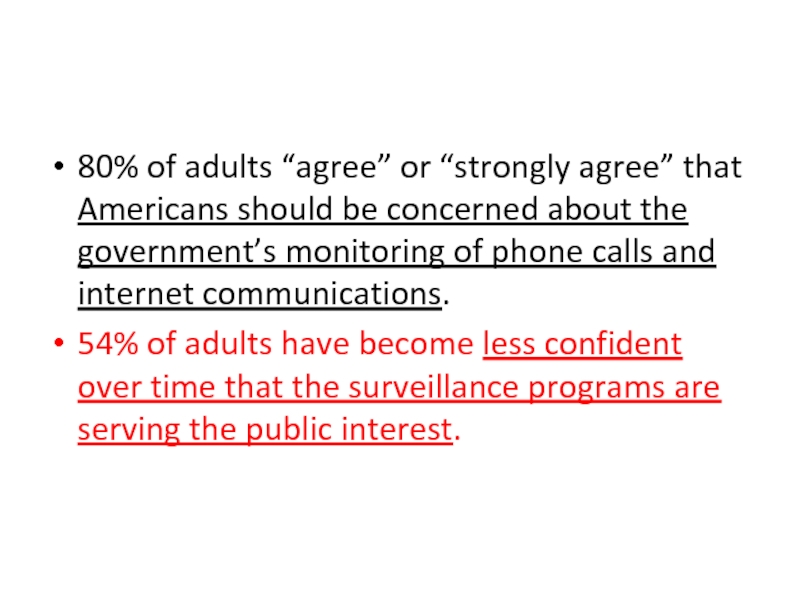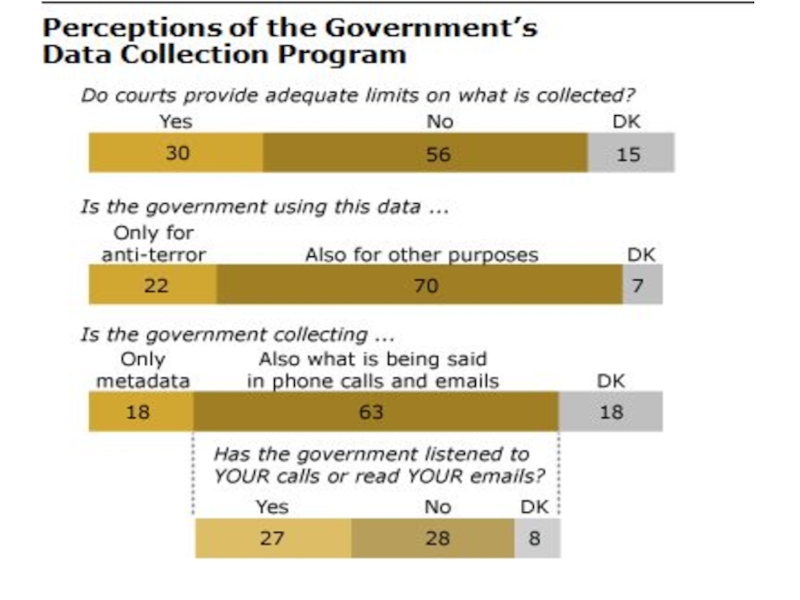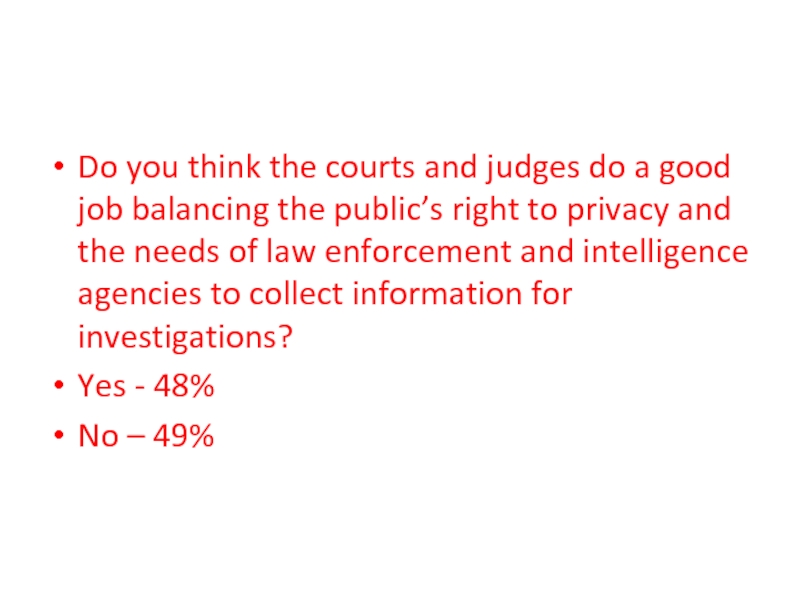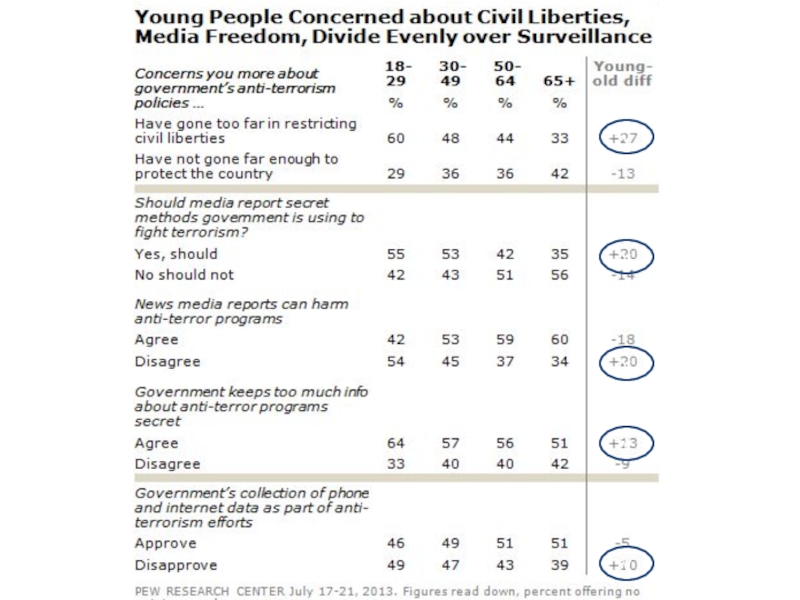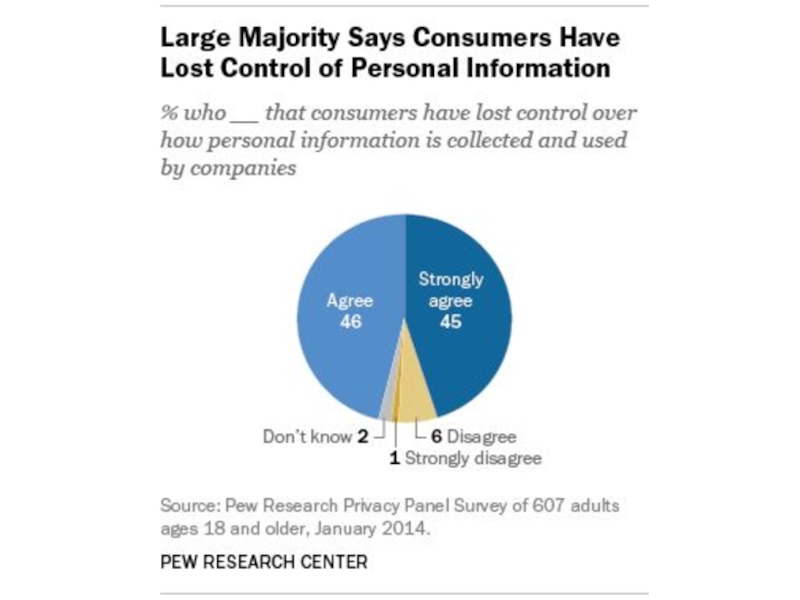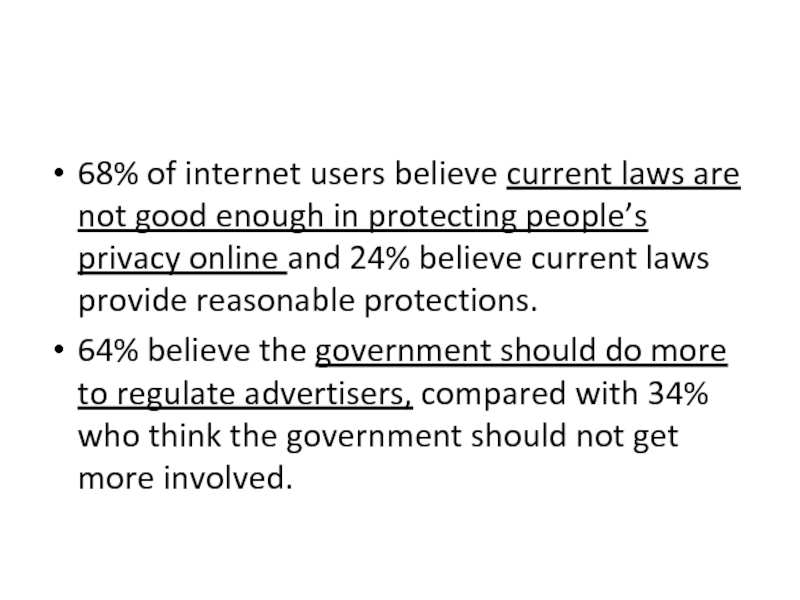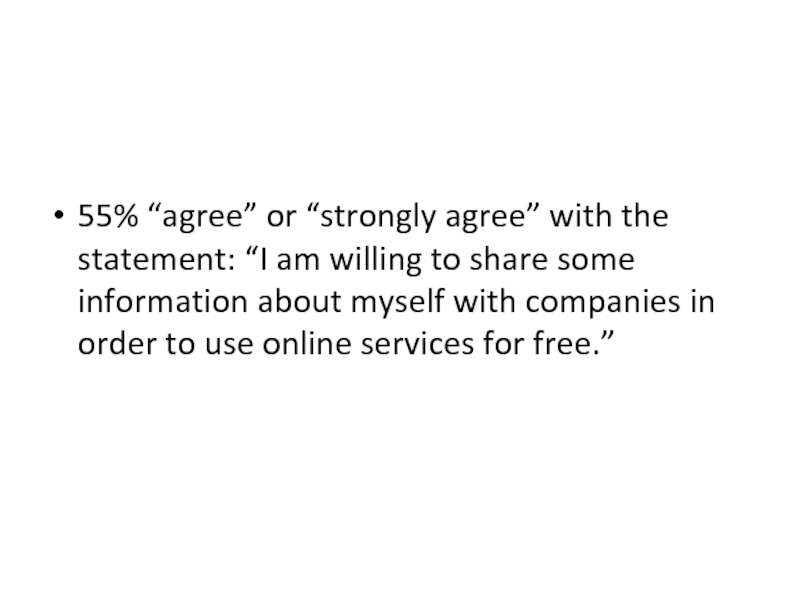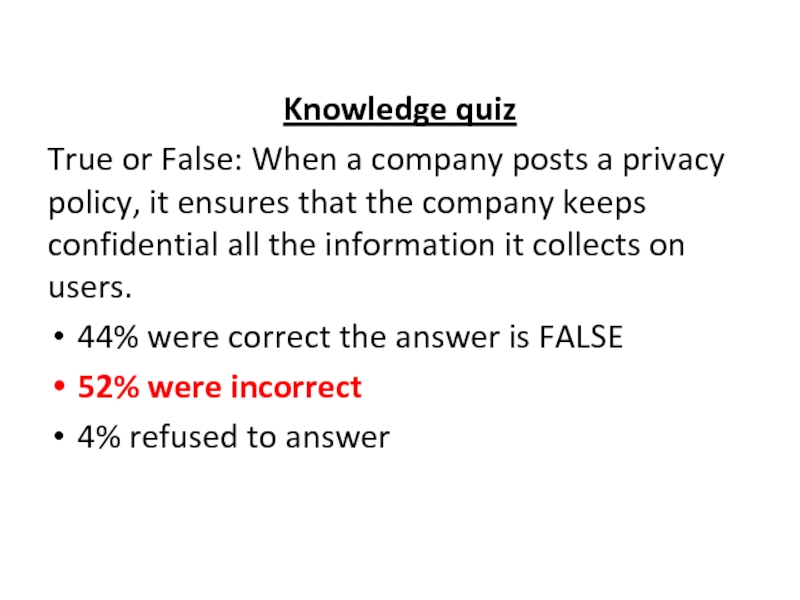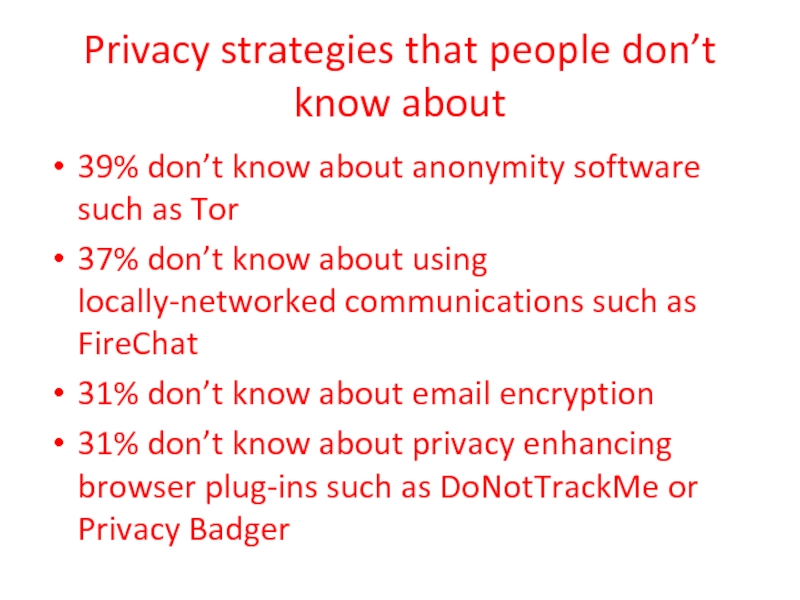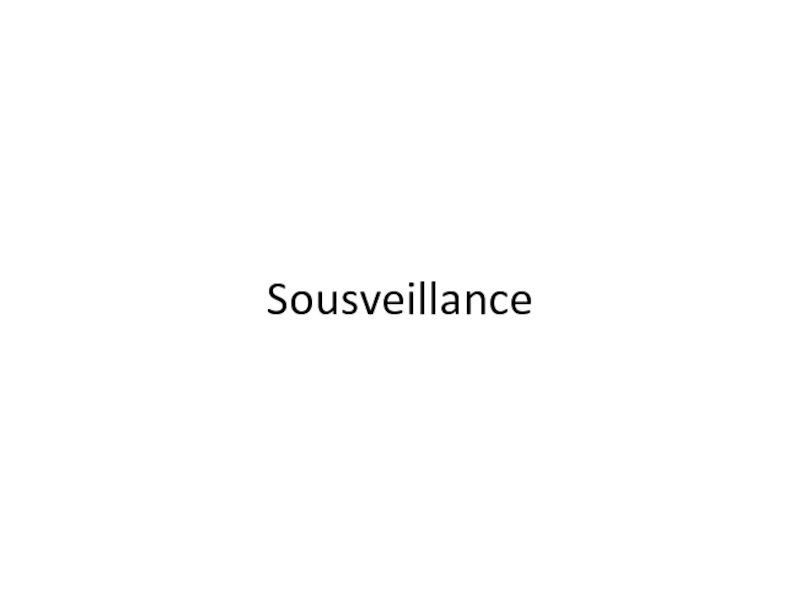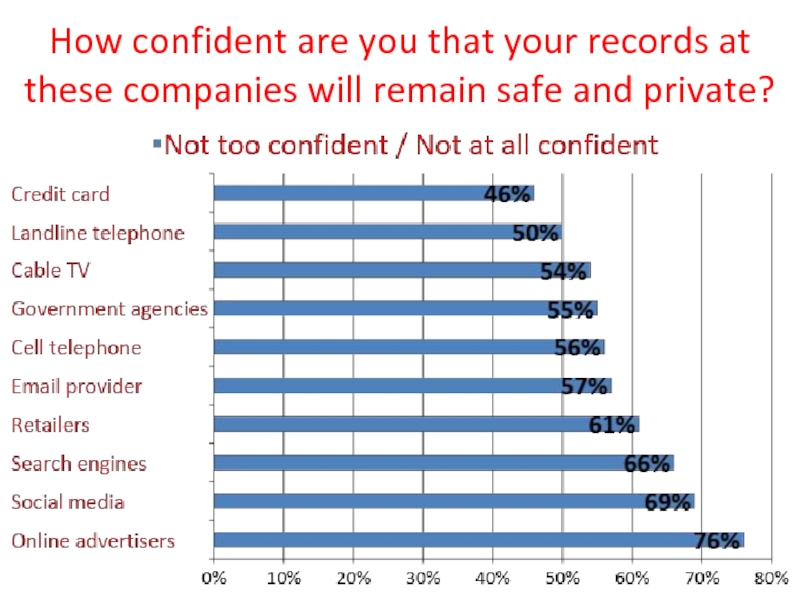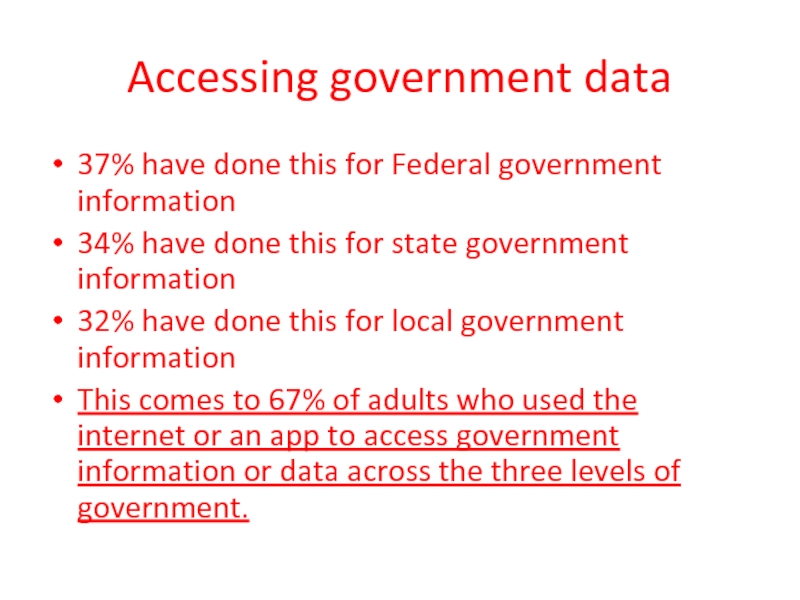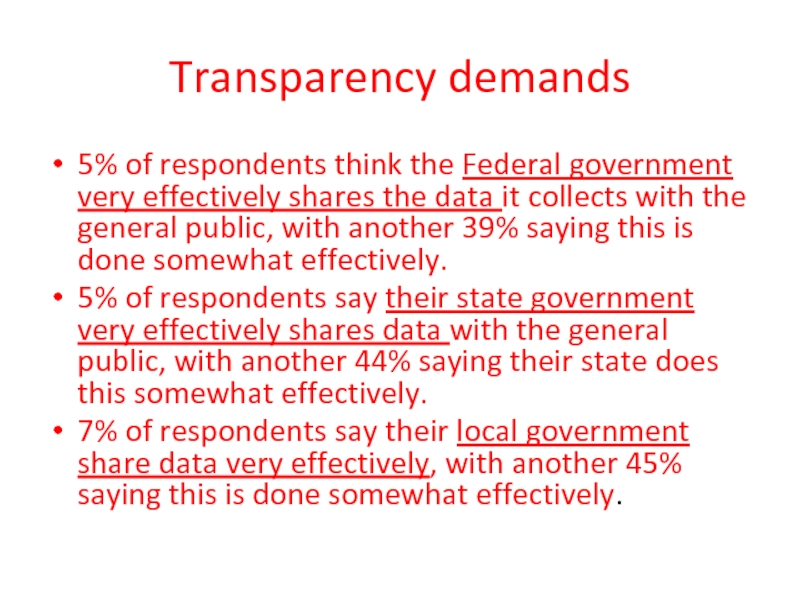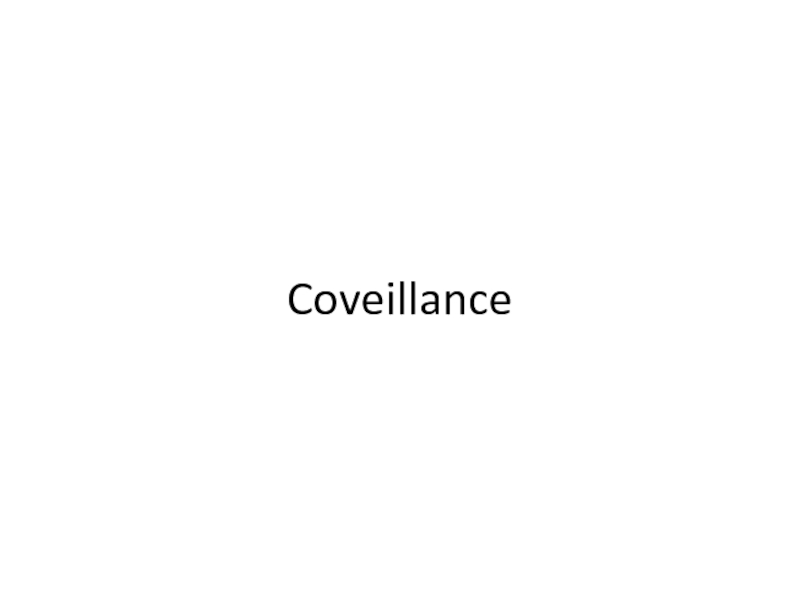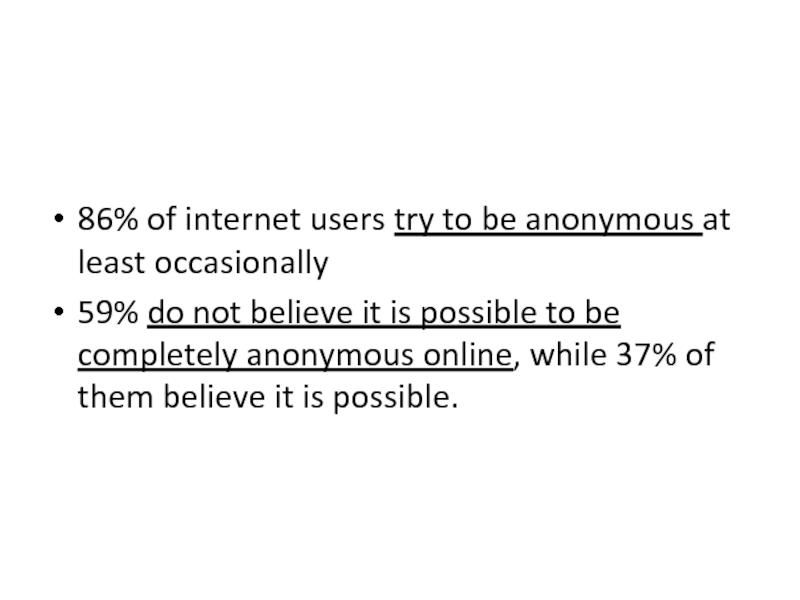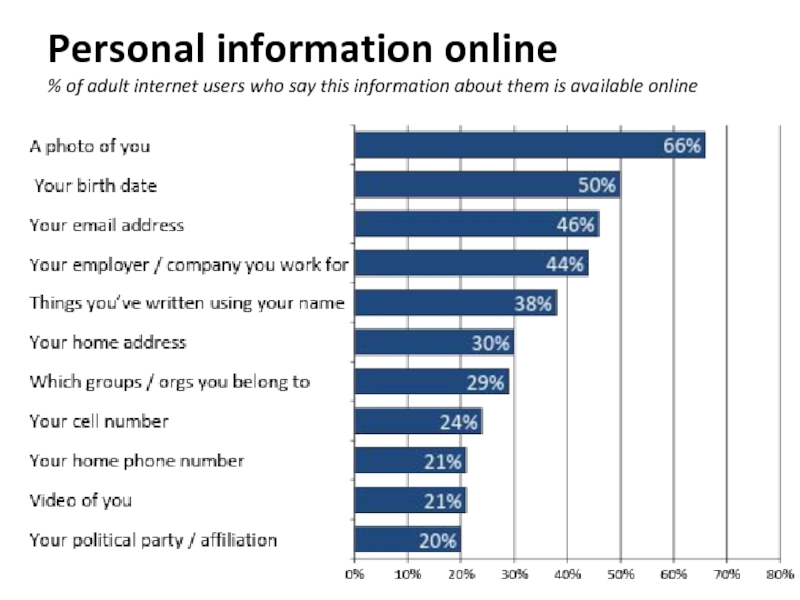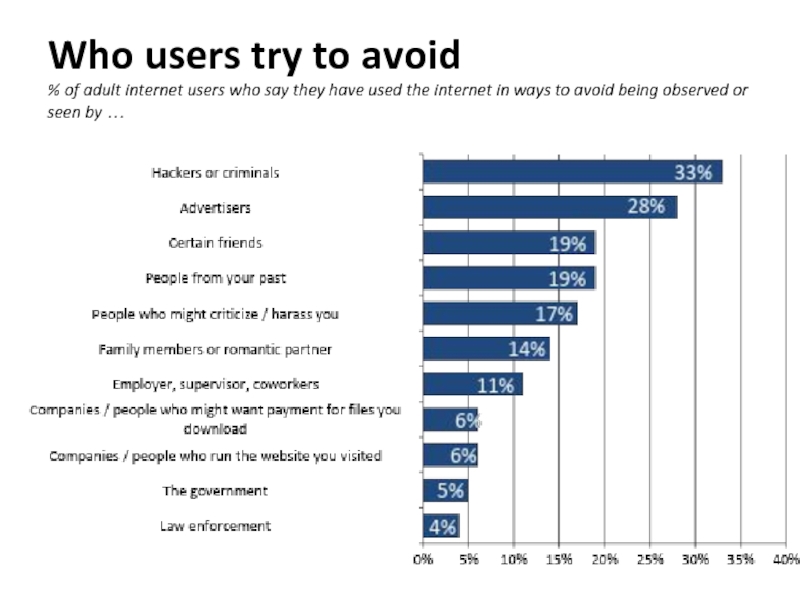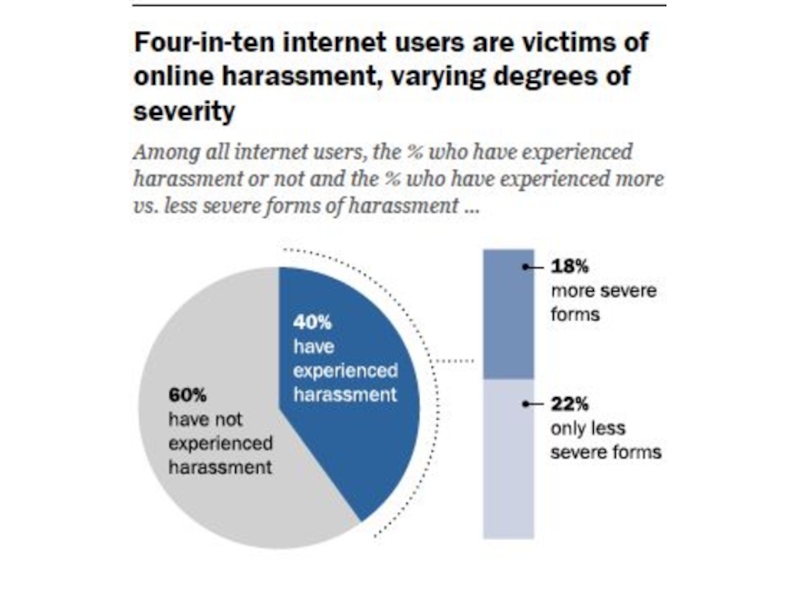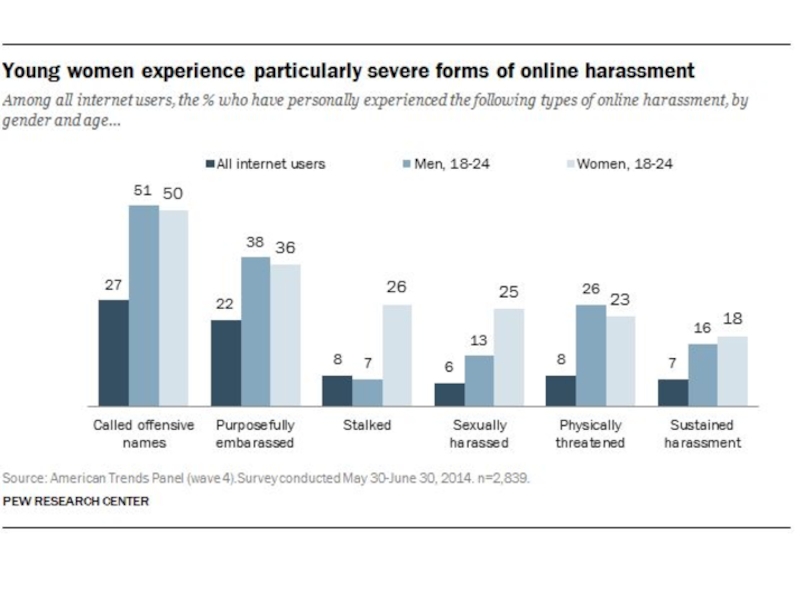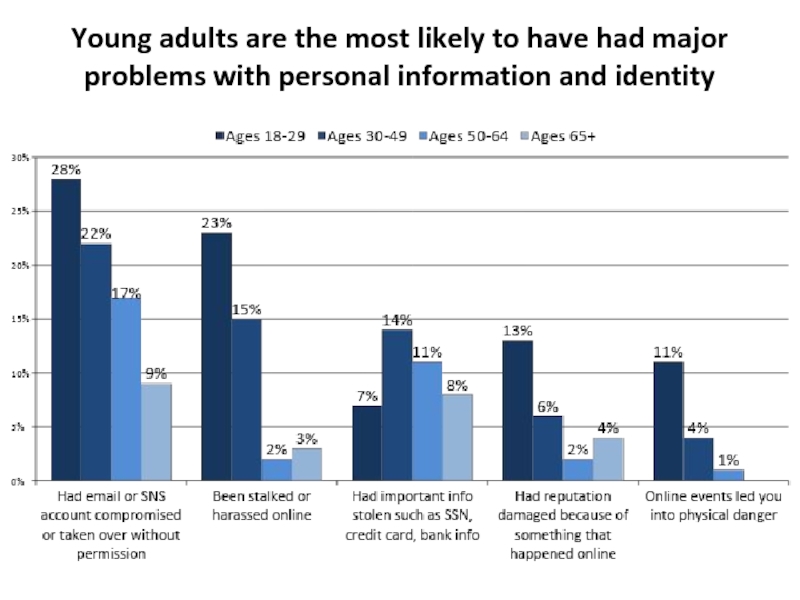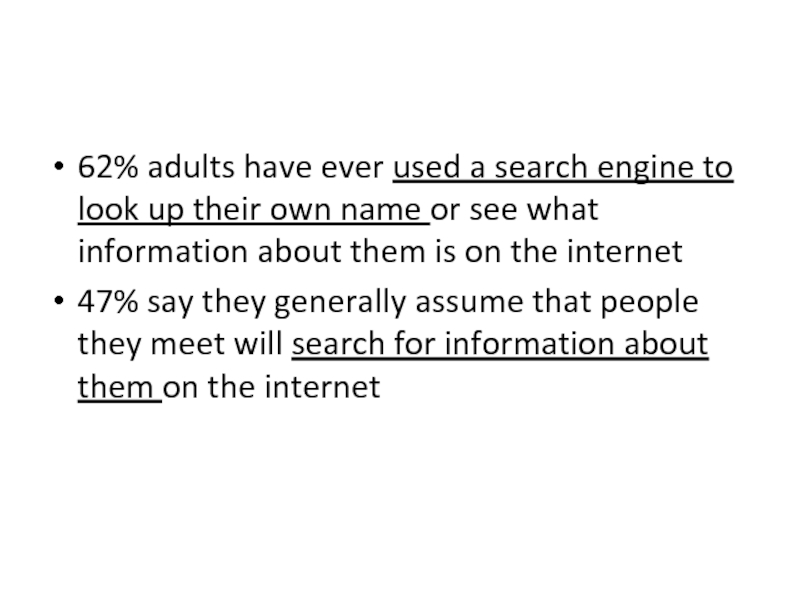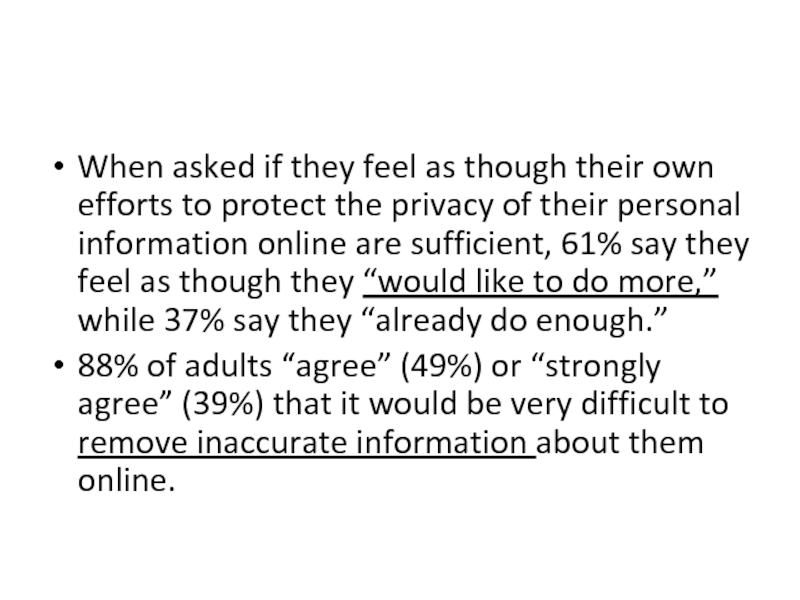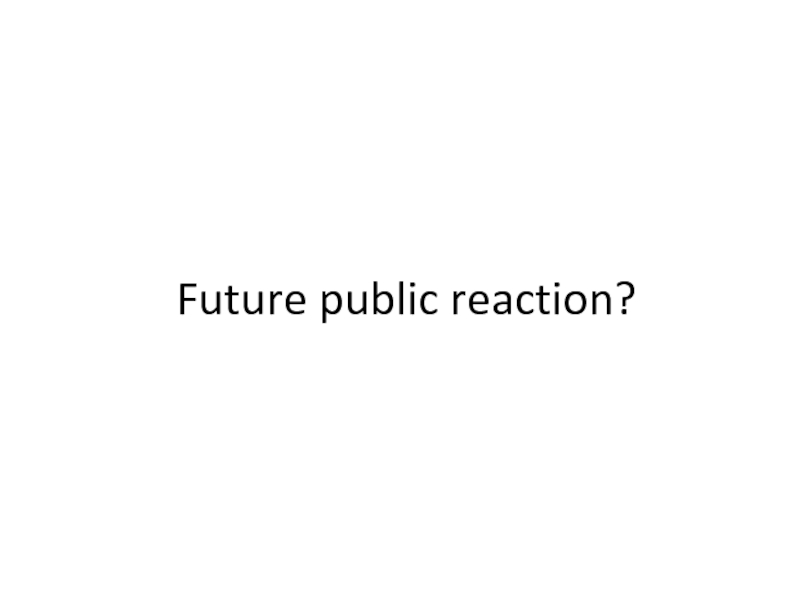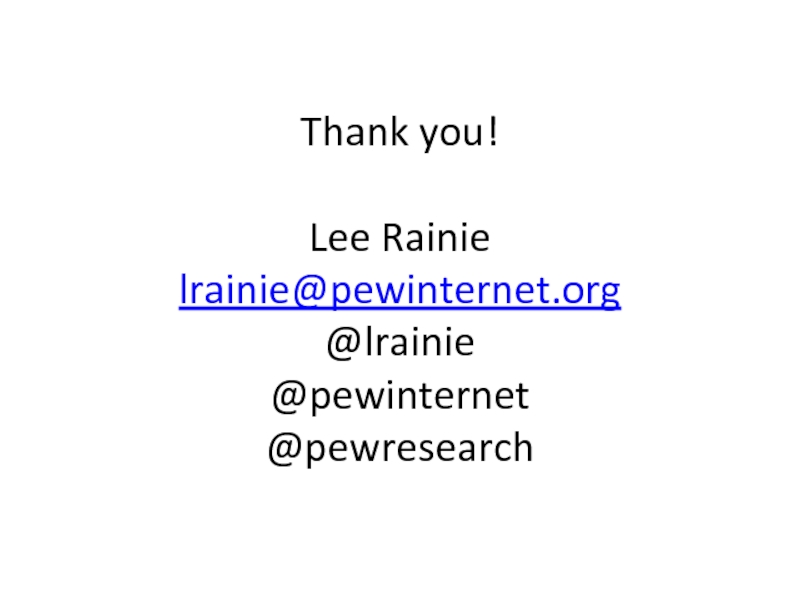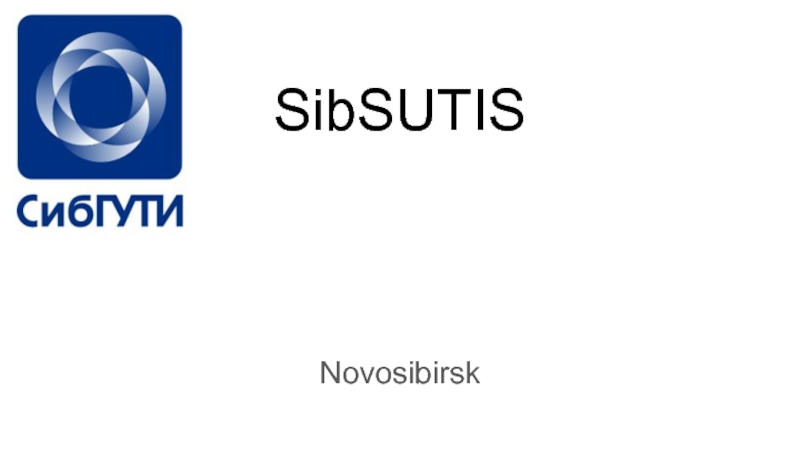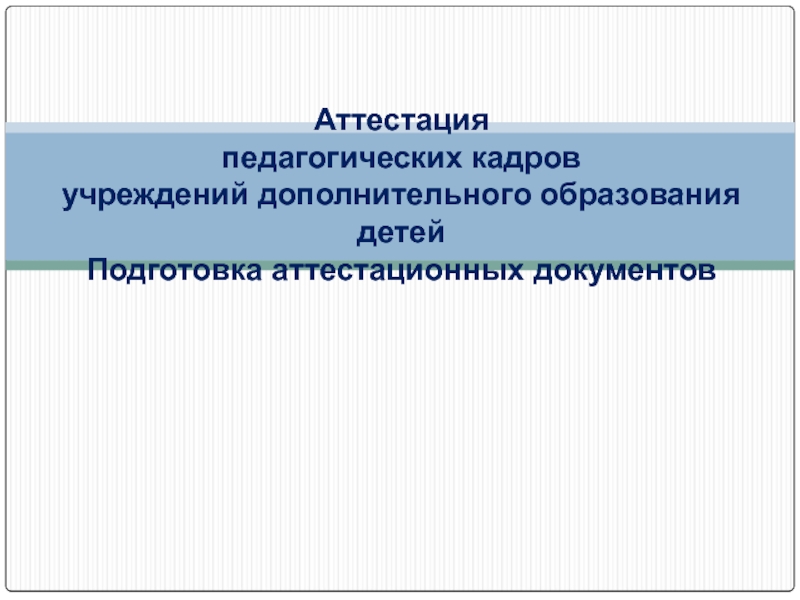Internet, Science, and Technology Research
Pew Research Center
1.23.15
Harvard University - “Privacy in a Networked World”
- Главная
- Разное
- Дизайн
- Бизнес и предпринимательство
- Аналитика
- Образование
- Развлечения
- Красота и здоровье
- Финансы
- Государство
- Путешествия
- Спорт
- Недвижимость
- Армия
- Графика
- Культурология
- Еда и кулинария
- Лингвистика
- Английский язык
- Астрономия
- Алгебра
- Биология
- География
- Детские презентации
- Информатика
- История
- Литература
- Маркетинг
- Математика
- Медицина
- Менеджмент
- Музыка
- МХК
- Немецкий язык
- ОБЖ
- Обществознание
- Окружающий мир
- Педагогика
- Русский язык
- Технология
- Физика
- Философия
- Химия
- Шаблоны, картинки для презентаций
- Экология
- Экономика
- Юриспруденция
Networked Privacy in the Age of Surveillance, Sousveillance, Coveillance презентация
Содержание
- 1. Networked Privacy in the Age of Surveillance, Sousveillance, Coveillance
- 3. 1. Privacy is not binary / context matters
- 4. 2. Personal control / agency matters
- 5. 3. Trade-offs are part of the bargain
- 6. 4. The young are more focused on networked privacy than their elders
- 7. 5. Many know they do not know what is going on
- 8. 6. People are growing hopeless and their trust is fading
- 9. The balance of forces has shifted in
- 10. On a typical day, how much
- 11. Surveillance
- 13. 80% of adults “agree” or “strongly
- 15. Do you think the courts and judges
- 16. v v v v v
- 18. 68% of internet users believe current
- 19. 55% “agree” or “strongly agree” with
- 20. Knowledge quiz True or False: When
- 21. Privacy strategies that people don’t know about
- 22. Sousveillance
- 24. How confident are you that your records at these companies will remain safe and private?
- 25. Accessing government data 37% have done this
- 26. Transparency demands 5% of respondents think the
- 27. Coveillance
- 28. 86% of internet users try
- 29. Personal information online % of adult internet
- 30. Who users try to avoid %
- 33. Young adults are the most likely to
- 34. 62% adults have ever used a search
- 35. When asked if they feel as
- 36. Future public reaction?
- 37. Thank you! Lee Rainie lrainie@pewinternet.org @lrainie @pewinternet @pewresearch
Слайд 1Networked Privacy in the Age of Surveillance, Sousveillance, Coveillance
Lee Rainie (@lrainie)
Director,
Слайд 9The balance of forces has shifted in the world of networked
information that is
persistent, scalable, searchable, spreadable …
… created and shared by networked individuals
----
The new reality is that people are “public by default and private by effort”
-- danah boyd
Слайд 10
On a typical day, how much control do you have over
information that is collected about you and how it is used?
47% say “a lot” or “some”
50% say “not much control” or “no control at all”
47% say “a lot” or “some”
50% say “not much control” or “no control at all”
Слайд 13
80% of adults “agree” or “strongly agree” that Americans should be
concerned about the government’s monitoring of phone calls and internet communications.
54% of adults have become less confident over time that the surveillance programs are serving the public interest.
54% of adults have become less confident over time that the surveillance programs are serving the public interest.
Слайд 15Do you think the courts and judges do a good job
balancing the public’s right to privacy and the needs of law enforcement and intelligence agencies to collect information for investigations?
Yes - 48%
No – 49%
Yes - 48%
No – 49%
Слайд 18
68% of internet users believe current laws are not good enough
in protecting people’s privacy online and 24% believe current laws provide reasonable protections.
64% believe the government should do more to regulate advertisers, compared with 34% who think the government should not get more involved.
64% believe the government should do more to regulate advertisers, compared with 34% who think the government should not get more involved.
Слайд 19
55% “agree” or “strongly agree” with the statement: “I am willing
to share some information about myself with companies in order to use online services for free.”
Слайд 20
Knowledge quiz
True or False: When a company posts a privacy policy,
it ensures that the company keeps confidential all the information it collects on users.
44% were correct the answer is FALSE
52% were incorrect
4% refused to answer
44% were correct the answer is FALSE
52% were incorrect
4% refused to answer
Слайд 21Privacy strategies that people don’t know about
39% don’t know about anonymity
software such as Tor
37% don’t know about using locally-networked communications such as FireChat
31% don’t know about email encryption
31% don’t know about privacy enhancing browser plug-ins such as DoNotTrackMe or Privacy Badger
37% don’t know about using locally-networked communications such as FireChat
31% don’t know about email encryption
31% don’t know about privacy enhancing browser plug-ins such as DoNotTrackMe or Privacy Badger
Слайд 25Accessing government data
37% have done this for Federal government information
34% have
done this for state government information
32% have done this for local government information
This comes to 67% of adults who used the internet or an app to access government information or data across the three levels of government.
32% have done this for local government information
This comes to 67% of adults who used the internet or an app to access government information or data across the three levels of government.
Слайд 26Transparency demands
5% of respondents think the Federal government very effectively shares
the data it collects with the general public, with another 39% saying this is done somewhat effectively.
5% of respondents say their state government very effectively shares data with the general public, with another 44% saying their state does this somewhat effectively.
7% of respondents say their local government share data very effectively, with another 45% saying this is done somewhat effectively.
5% of respondents say their state government very effectively shares data with the general public, with another 44% saying their state does this somewhat effectively.
7% of respondents say their local government share data very effectively, with another 45% saying this is done somewhat effectively.
Слайд 28
86% of internet users try to be anonymous at least occasionally
59% do not believe it is possible to be completely anonymous online, while 37% of them believe it is possible.
Слайд 29Personal information online % of adult internet users who say this information
about them is available online
Слайд 30Who users try to avoid % of adult internet users who
say they have used the internet in ways to avoid being observed or seen by …
Слайд 33Young adults are the most likely to have had major problems
with personal information and identity
Слайд 3462% adults have ever used a search engine to look up
their own name or see what information about them is on the internet
47% say they generally assume that people they meet will search for information about them on the internet
47% say they generally assume that people they meet will search for information about them on the internet
Слайд 35
When asked if they feel as though their own efforts to
protect the privacy of their personal information online are sufficient, 61% say they feel as though they “would like to do more,” while 37% say they “already do enough.”
88% of adults “agree” (49%) or “strongly agree” (39%) that it would be very difficult to remove inaccurate information about them online.
88% of adults “agree” (49%) or “strongly agree” (39%) that it would be very difficult to remove inaccurate information about them online.
